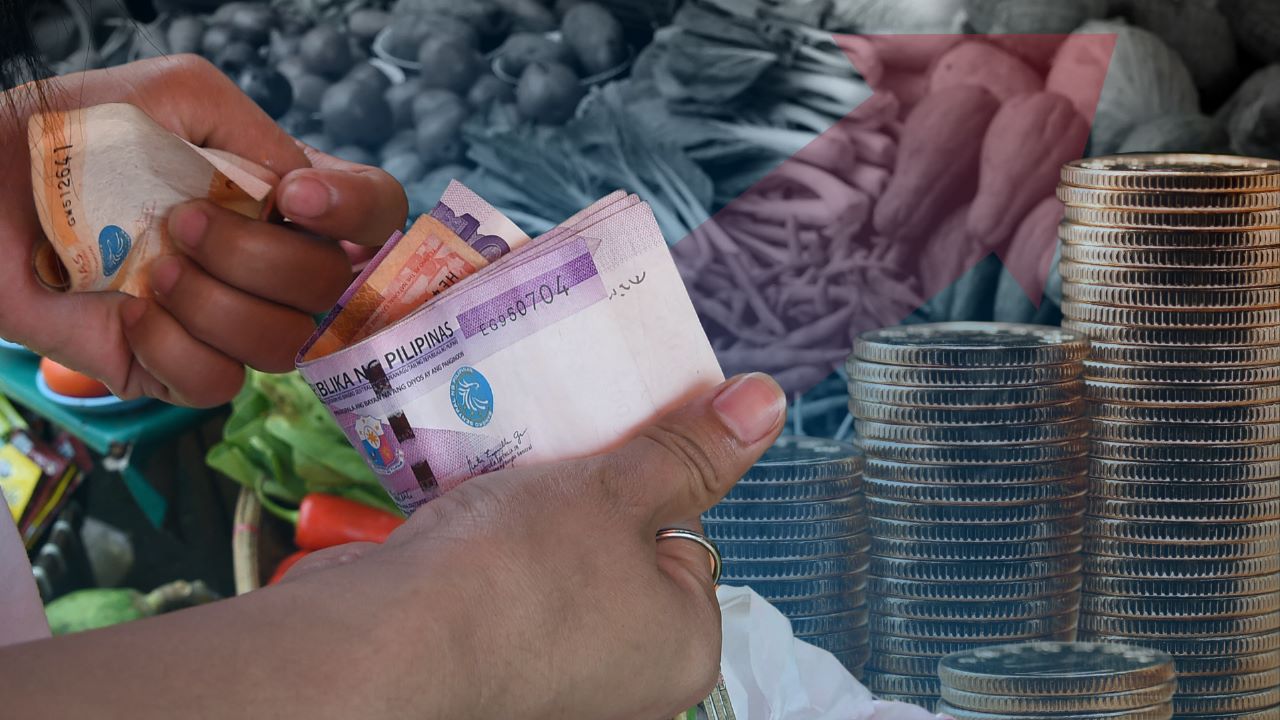Headline inflation in September fell sharply to its lowest rate in more than four years, driven by a slower rise in costs for food, transport, housing and utilities like water and electricity, the Philippine Statistics Authority (PSA) reported on Friday.
Preliminary data from the agency showed that the increase in the prices of basic goods and services as measured by the consumer price index slowed to 1.9 percent year- on-year in September, easing from the 3.3 percent in August and 6.1 percent last year.
This was also lower than the Bangko Sentral ng Pilipinas’ (BSP) projection of 2 to 2.8 percent from the previous month, as well as the 2.5 percent average inflation forecast reported in an Inquirer poll last week.
September’s inflation rate represented the slowest growth since the 1.6 percent recorded in May 2020. When accounting for seasonal variations, month-on-month inflation fell by 0.1 percent.
For the first nine months, inflation averaged 3.4 percent, still better than the 6.6 percent in September 2023.
National Statistician Dennis Mapa attributed the cooling inflation to the slower increase in food and nonalcoholic beverages, transport and utilities such as water and electricity.
Rice prices
Food inflation alone plummeted to 1.4 percent in September from 4.2 percent in the previous month and 10 percent last year.
The primary reason for the slowdown in food inflation was rice, which cooled to 5.7 percent, down from 14.7 percent in August. This represents the lowest growth rate since July 2023, which was 4.2 percent.
“With rice, it really has a base effect. And I’ve been mentioning that since the previous, we will be experiencing the slowdown in August, September, October, November … It will go down because of higher inflation last year,” Mapa said during a press briefing.
Transport costs also experienced slower growth, declining to 2.4 percent from a 0.2- percent contraction the previous month. Meanwhile, price hikes for utilities, including housing, water, electricity and gas, eased to 3.2 percent from 3.8 percent in the prior month.
Although the September inflation slowdown is viewed as a positive development, John Paolo Rivera, a senior research fellow at the Philippine Institute for Development Studies, warns that it also carries risks.
“There is a healthy level of inflation that will keep the economy, both supply and demand, balanced at 2 percent as agreed by economists. A small amount of inflation is beneficial than detrimental,” Rivera told the Inquirer.
Holiday season
Rivera expects inflation to increase with the approach of the holiday season, as heightened consumer demand may exceed supply, resulting in higher prices for goods.
For Ruben Carlo Asuncion, chief economist at Union Bank of the Philippines, the development is favorable especially in light of rising tensions in the Middle East. He also added that this will play a crucial role in guiding the monetary policy decisions of the central bank.
In a separate note, National Economic and Development Authority Secretary Arsenio Balisacan further noted that slowing inflation is likely to improve consumer confidence, leading to increased spending and consumption, which can encourage business growth.
With inflation well within the official target and economic growth staying robust, BSP Governor Eli Remolona Jr. said in a Bloomberg interview that the central bank would unlikely resort to oversized easing moves.
Remolona explained that the BSP would instead trim borrowing costs by a quarter point one at a time. Moving forward, the central bank chief said the key rate could go down to around 4.5 percent by the end of 2025, from 6.25 percent now.
“If the data are as we expect, then you would have the normal easing, which is small steps at a time, baby steps,” Remolona said.
The benchmark rate had been slashed to its current level after the BSP delivered a 25-basis point (bp) cut in August.
In a commentary, Miguel Chanco, economist at Pantheon Macroeconomics, said the lower-than-expected September inflation “effectively guarantees another BSP cut” at the Oct. 16 policy meeting of the Monetary Board.
“In terms of monetary policy, we continue to believe that the Board will cut by a further 25 bp at its meeting this month, before stepping up the pace of easing to 50 bp each time from December until the target reverse repo rate falls to a terminal level of 4 percent,” Chanco said. INQ


